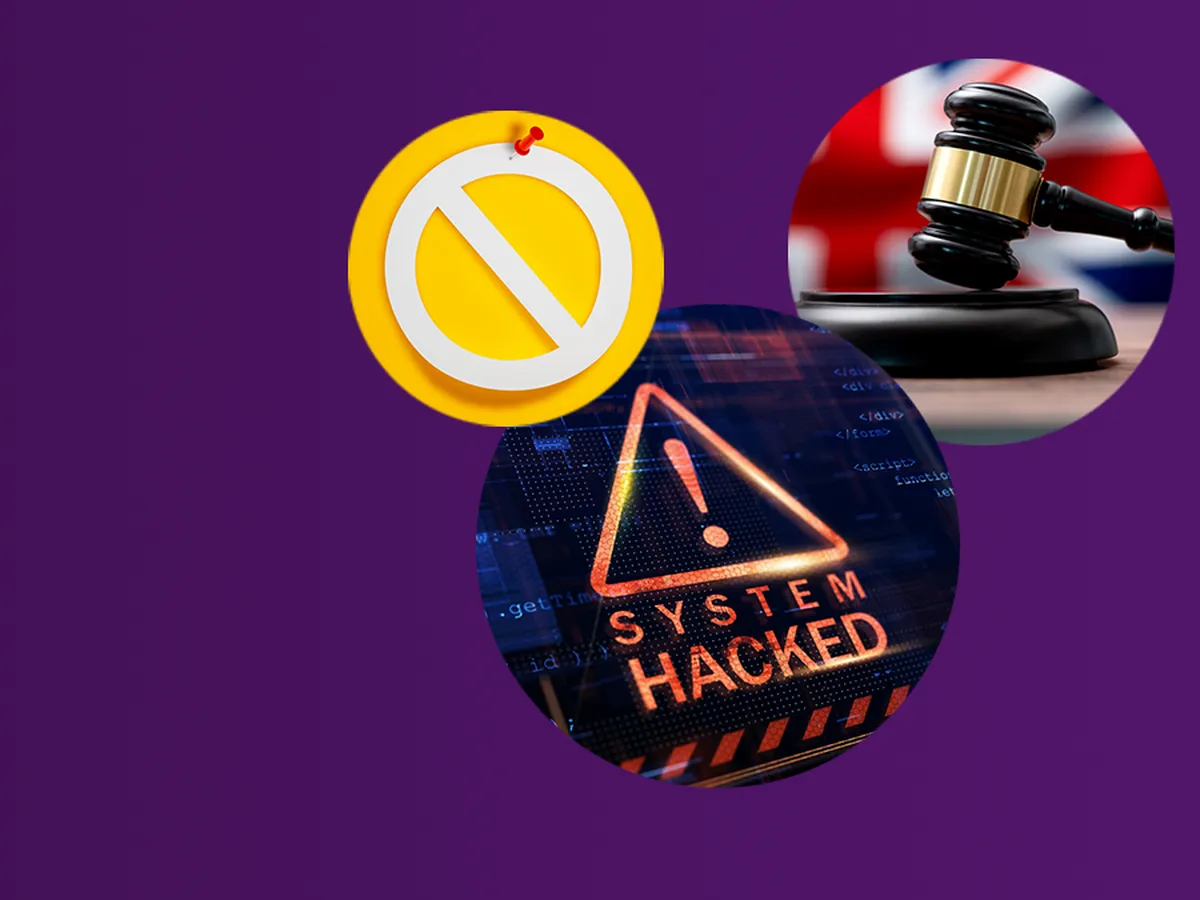
- Ransomware
- 8 min read


An organisation’s security culture encompasses a knowledge baseline, awareness levels, security attitudes and employee behaviours regarding the threat landscape and cyber security.
To achieve a strong cyber security culture, your organisation needs to build awareness of common threats as well as emerging ones … plus you need to be clear about best practice and protocols for a variety of situations, normalising, and drilling in these behaviours, so they become second nature to your team.
Creating cyber security culture in a business also involves implementing a long-term strategy across the entire organisation, outlining your security goals, starting with board members and C-level executives, and working your way down.
Plus, as more organisations embrace working from home and bring-your-own-device (BYOD), creating, and sustaining a strong cyber security culture has become about making security second nature in an individual’s day-to-day life, not just at work and not just as a tick-box chore.
This article will delve into the significance and importance of creating a positive cyber security culture.
To put things very simply; it is far better, and financially sound, to be proactive than reactive when it comes to cyber security and the myriad of threats your organisation faces. Building a culture of awareness, trust and knowledge with your employees and executives means security incidents are less likely to occur, and if they do, employees will be much more prepared to deal with the fallout quickly and effectively to minimise any financial, technical, or reputational damage.
Through comprehensive training and awareness programs, employees can become better equipped to identify and report suspicious activities, contributing to the timely detection and response to potential threats.
A single cyber breach can have severe consequences for an organisation's brand reputation and customer trust. By cultivating a cyber security culture, organisations signal their commitment to protecting sensitive data, inspiring customer confidence, and reinforcing their reputation as a trustworthy entity. This, in turn, leads to customer loyalty, increased market competitiveness, and long-term sustainability.
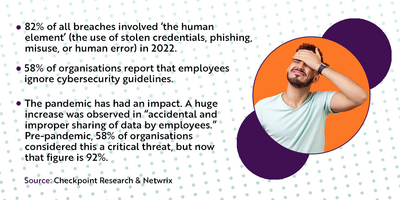
Human error remains a leading cause of successful cyber attacks. According to Checkpoint Research, 82% of all breaches involved ‘the human element’ (the use of stolen credentials, phishing, misuse, or human error) in 2022. This statistic underscores the urgent need for organisations to recognise the vital role employees play in safeguarding sensitive data and mitigating cyber risks. Establishing a strong cyber security culture is crucial to educate and empower the workforce as the first line of defence.
Furthermore, a strong cyber security culture also brings with it an environment of innovation and collaboration. When employees are confident in their organisation's security measures, they are more willing to explore new technologies, experiment with novel approaches, and engage in creative problem-solving. When you encourage employee security behaviour development, you can unleash the full potential of employees, encouraging them to contribute ideas and drive innovation forward.
When employees feel that their organisation prioritises cyber security and invests in their protection, they experience reduced stress and anxiety related to potential cyber threats. This, in turn, enhances overall employee well-being and job satisfaction. A workforce that feels secure and supported is more likely to be productive, engaged, and committed to the organisation's success.
On top of this, we must remember that a cyber security culture can extend beyond the corporate realm to address personal spaces as well. By educating employees on protecting their online identities, securing personal devices, and always practicing good cyber hygiene, organisations contribute to the overall well-being of their employees and their families. This holistic approach fosters a culture of care and support, which strengthens the employer-employee relationship and contributes to a positive work environment.
For many CISOs, compliance and regulation can often feel like a chore or tick-box exercise. On top of this, organisations face a growing array of regulatory and compliance requirements and, in some cases, these regulations are constantly shifting and changing. By embedding cyber security practices and policies into the fabric of employee behaviours, organisations can more easily meet regulatory obligations, avoid penalties, and protect their reputation. When you encourage a secure culture, compliance becomes a natural outcome of a cyber security culture that values and upholds the principles of privacy, data protection, and confidentiality.
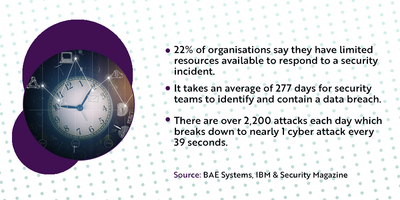
A strong cyber security culture goes together with effective risk mitigation strategies. By cultivating a culture that emphasises risk awareness, CISOs empower employees to recognise potential vulnerabilities, follow secure practices, and promptly report security incidents. Furthermore, a comprehensive cyber security culture also includes focus on incident response. So, when employees are trained and equipped with incident response protocols, they can effectively and efficiently respond to cyber incidents, reducing the impact and mitigating potential damage.
In IBM’s 2022 data security report, it was reported that it took an average of 277 days – roughly 9 months – for businesses to identify and report a data breach. One can surmise that the significant lag time between security incident, identification, reporting and handling of said security incident, is down to a lack of knowledge on what threats look like, how best to report them and how best to respond to them. It could also be a case of the threat has indeed been spotted by an employee, but they do not have the confidence, or feel as if they are ill-equipped, to deal with the consequences of a cyber breach. This will be because of not understanding the ramifications of a breach and a cyber security awareness and training program that failed to explain how important every single employee is to a security culture. It is no use having a strong, sturdy, and resilient brick wall if a few loose bricks bring it tumbling down.
Creating a cyber security culture is crucial for safeguarding intellectual property (IP). Intellectual property, including proprietary information, trade secrets, and research and development (R&D) data, is a valuable asset for organisations … and hackers know they can fetch a few bucks for it as well. Protecting this intellectual property is essential for maintaining a competitive advantage and driving innovation.
A robust cyber security culture ensures the confidentiality, integrity, and availability of intellectual property assets. By implementing strong access controls, encryption, and data loss prevention mechanisms, organisations can mitigate the risk of IP theft and unauthorised access.

Many organisations struggle with creating a connection between C-level executives and employees further down the ladder. This, of course, happens for a variety of reasons but with cyber security, executives not only have the opportunity to operate on the same level playing field as their employees, but they also show their workforce their enthusiasm and capacity for internal colleague development.
Creating a cyber security culture requires unwavering commitment and support from organisational leaders. When leaders actively champion cyber security initiatives and demonstrate their commitment, employees are more likely to adopt security practices. In other words, if you get the board to buy in, you get the employees to buy in as well.
Organisations that prioritise cyber security culture gain a distinct competitive advantage. By demonstrating a commitment to security, an organisation not only instils confidence in partners, clients, and stakeholders but also shows potential investors the type of professional company they are getting involved with. This competitive advantage can lead to new business opportunities, partnerships, and increased market share, positioning organisations as leaders in their respective industries.

According to a report from SecurityScorecard and the Cyentia Institute, a total of 98% of organisations worldwide have integrations with at least one third-party vendor that has been breached in the last two years. Third-party vendors are also five times more likely to exhibit poor security.
Creating a cyber security culture within an organisation has a positive ripple effect on the entire supply chain. Organisations that prioritise cyber security practices and enforce them across their infrastructure raise the overall security posture of the supply chain. By encouraging partners, vendors, and contractors to align with the same cyber security practices as your first-hand employees, organisations can mitigate potential vulnerabilities and reduce the risk of supply chain disruptions caused by cyber attacks. This collaborative approach fosters a secure environment for shared data and establishes a network of trust among interconnected entities.
A cyber secure environment goes beyond implementing technical controls; it requires cultivating a mindset that values and prioritises cyber security at every level of your organisation.
When you invest in growing a cyber security culture, you also promote a continuous learning environment, enabling employees to adopt security-conscious behaviours in their day-to-day activities. This heightened vigilance creates a collective sense of responsibility for protecting critical assets.
And, whilst the traditional reasons for creating a cyber security culture are undeniably important, organisations should also recognise the broader impact that such a culture can have. By safeguarding brand reputation, stimulating responses, ensuring compliance, building resilience, and establishing a competitive advantage, organisations can harness the full potential of a cyber security culture.
If you would like more information about how The Security Company can help you to deliver targeted cyber security training or how we help clients with long term security culture change ... please contact our Head of Business Development and Sales, Jenny Mandley.
The Security Company's vast library of customised and non-customised products and services are tailored for small, medium and large organisations and are available in a variety of languages. We also offer bespoke solutions for organisations that desire training and awareness materials built from the ground up.

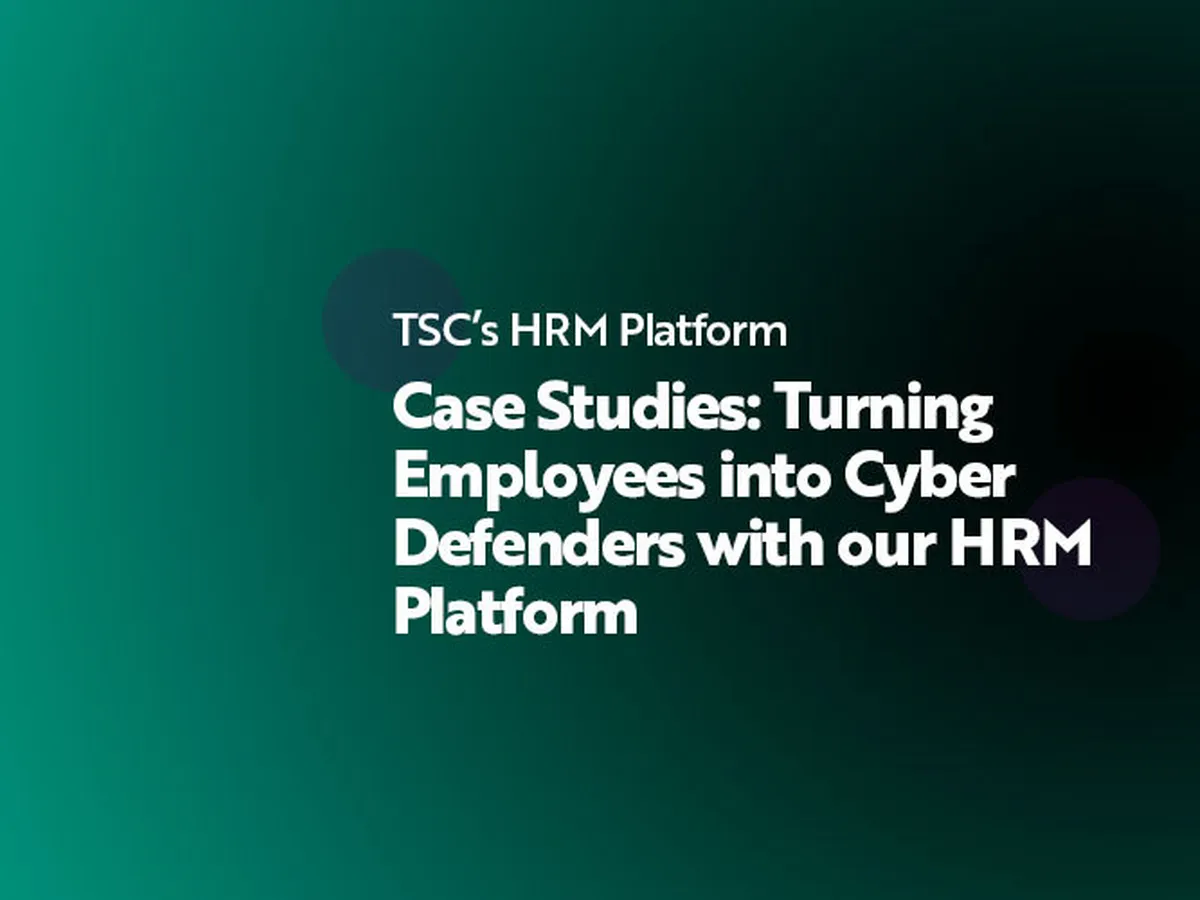
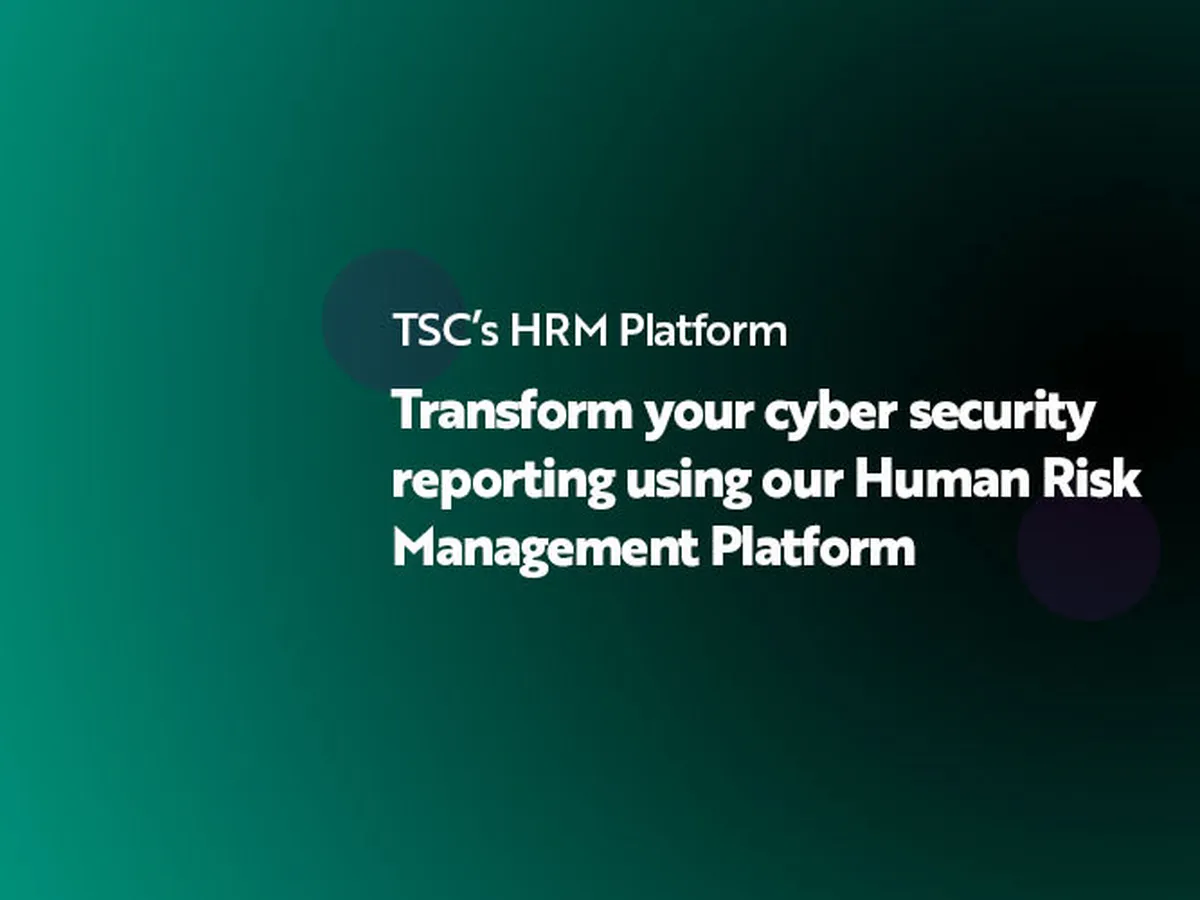
© The Security Company (International) Limited 2025
Office One, 1 Coldbath Square, London, EC1R 5HL, UK
Company registration No: 3703393
VAT No: 385 8337 51


